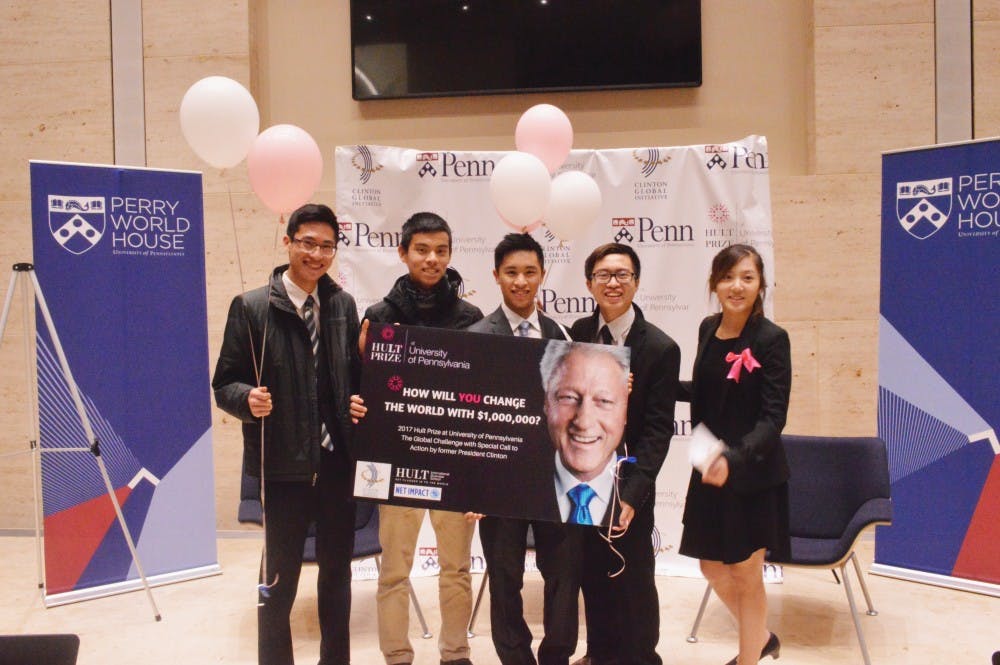No Internet. No cell signal. No communication capability.
For many, these circumstances describe a worst case scenario. But for refugees, these statements represent their state of affairs.
A group of four Penn freshmen wanted to change this reality. The team, known as Team Mesh, just qualified for the regional finals of the Hult Prize, in which teams of three to four undergraduates from over 100 countries propose start-ups that confront this year’s challenge of the refugee crisis.
Comprised of Wharton and Engineering freshmen Victor Chien, Connor Chong and Chris Lin and Engineering freshman Dan Truong, Team Mesh constructed a hardware — called the mesh box — and a smartphone app that would enable refugees to communicate with one another without the need for cell towers or the Internet.
“Every time a phone is added to the network, it acts as a new node, meaning it’s another connection point,” Lin said. “If you imagine each node as a circle, when the centers of the circle are close enough together and you link the circles together, you make a larger, outer perimeter, which represents the boundary of the network.”
The network created by the smartphone app would permit refugees to join forces and focus on challenges they would never have been able to resolve on their own.
“For refugees who are on the move, it can help give them back their voice, their ability to communicate with each other, share their stories and build this community which a lot of refugees that are on the move don’t necessarily have because they’re cut off from everything else,” Lin said.
Team Mesh isn’t the only Penn team that qualified for the Hult Prize regional finals. Another team of Penn freshmen secured a spot in the regional competition by winning the Hult Prize at Penn. While Team Mesh – the runner-up team of the Hult Prize at Penn – did not qualify through the Penn competition, they applied directly to the general applicant pool by submitting an online form and writing up a proposal of their social enterprise.
“One notable difference was because the form was done over the Internet, there wasn’t any physical demonstration that we could do,” Truong said. “So we had to definitely put in a lot more effort in explaining specifically how the device worked in a way that the general public could understand without having to look up anything too technical.”
Engineering and Wharton sophomore Quinn Wu, a director of logistics for the Hult Prize at Penn, said Team Mesh’s development of a prototype impressed him the most.
“I’m just very interested in the technology itself,” Wu said. “I thought it was pretty interesting that it could... use tech to actually help the refugee crisis.”
As the members of Team Mesh look towards the regional finals in March at San Francisco, they all reflected on how the Hult Prize increasingly served as a way not just to gain skills but also to fulfill a desire to make a social impact.
“As we learned more about the Hult Competition, I think that this story and the people that we’re helping through this competition really took over,” Lin said.
“I think no matter how San Francisco turns out, we’re all on board to continue developing our idea because we really believe in it.”









